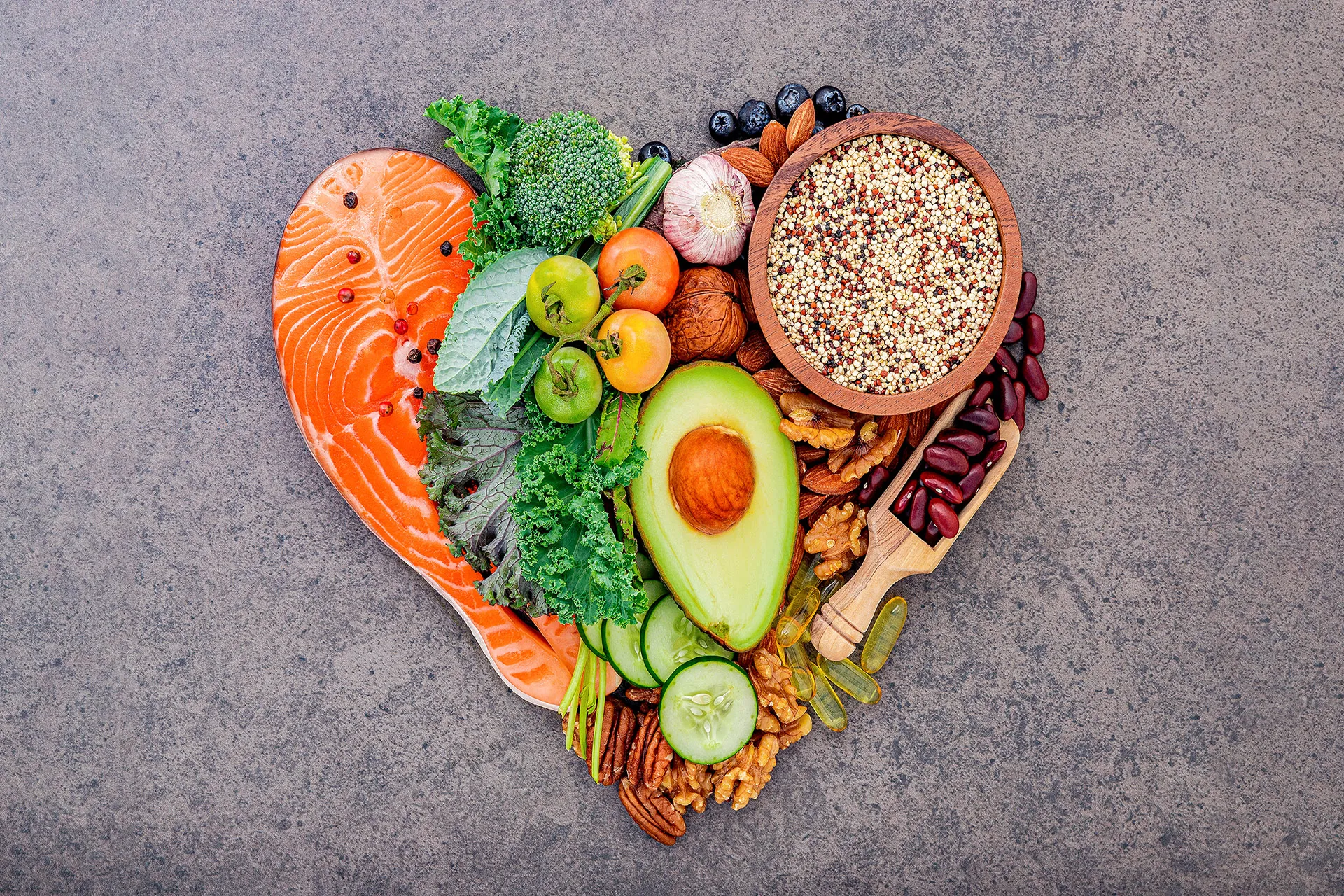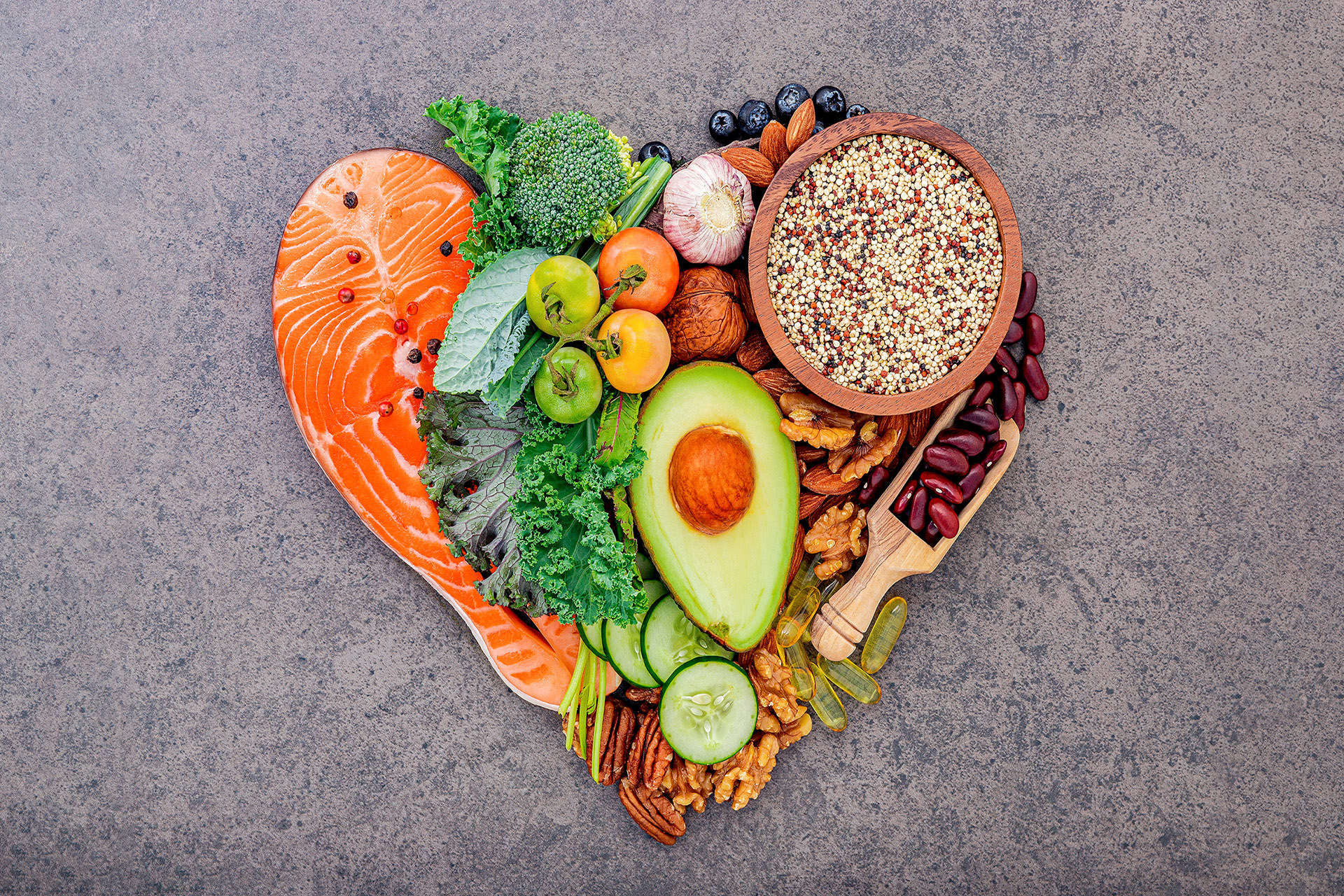Nutrition | 6 min read
Cholesterol Diet Plan: Foods To Reduce Cholesterol, Foods To Avoid
Medically reviewed by
Table of Content
Key Takeaways
- Certain foods contribute to excessive production of cholesterol in your body
- Reduce cholesterol by following a low cholesterol diet plan and exercising
- Use the Bajaj Finserv App to get a tailored cholesterol treatment plan
Cholesterol is often flagged as something very dangerous. But did you know that your body actually requires cholesterol and that it isn’t inherently bad?
Cholesterol is an integral component of healthy cells in your body. It is a waxy substance—known as a lipid—that moves through your body via your blood. Cholesterol helps form cell membranes that protect the contents of each cell in your body. It is also used in the production of bile which is critical to digestion. In addition, your body requires cholesterol to produce vitamin D as well as certain hormones.
Your liver produces the optimal amount of cholesterol that your body needs for these functions. However, the food you eat also contributes to the production of cholesterol. This means that depending on what you eat, there could be an excess of cholesterol in your body, and this could cause health problems. Keep reading to learn more about how the food you eat impacts cholesterol levels, the dangers of high cholesterol, and how to reduce cholesterol through your diet.
Excess Of Cholesterol Effects
As you know, your body produces all the cholesterol it needs. When you eat a diet that’s rich in foods that also boost the production of cholesterol, you pose a threat to your health. Broadly speaking, meat, dairy and foods that are high in saturated and trans fats can cause high cholesterol levels.
When this happens, the amount of cholesterol travelling through your blood stream increases drastically. The cholesterol may form deposits on the walls of your arteries, restricting blood flow. Over time, this contributes to high blood pressure. In some cases, these deposits can break away from the walls of the arteries and form a clot, resulting in a heart attack or stroke.
While high cholesterol can be hereditary, most times it’s poor lifestyle choices, heralded by a bad diet, that cause elevated cholesterol levels. As it doesn’t present prominent symptoms, the best way to catch high cholesterol is to get screened regularly. Should you have it, the first step to reduce cholesterol is to manage your diet.
Foods That Lower Cholesterol
Learn about the foods that lower cholesterol so that you can make a conscious transition to a low cholesterol diet plan.
Oats
Eating a bowl of oatmeal or a chilled oat-based cereal such as Cheerios for breakfast is a simple first step to decreasing your cholesterol. It provides 1-2 soluble fiber grams. Add some banana or strawberries for an extra half gram. The current nutritional recommendations call for consuming 20 to 35 grams of fiber a day, at least 5 to 10 of which should be soluble fiber.
Whole grains like barley
Barley and other whole grains, including oats and oat bran, can reduce the risk of heart disease, mostly because of the soluble fiber they provide. These are one of the best foods to avoid cholesterol.Beans
Particularly abundant in soluble fiber are beans. Furthermore, they take longer for the body to process, extending the time you feel full and satisfied after eating. Beans are advantageous as a food for those who are attempting to reduce weight. Beans are particularly adaptable since there are wide varieties, ranging from navy and kidney beans to lentils, garbanzos, black-eyed peas, and more.
Okra with eggplant
The soluble fiber in these two low-calorie veggies is excellent. This is considered one of the foods to reduce cholesterol.
Added sterol and stanol-fortified foods include
Stanols and sterols obtained from plants stop the body from absorbing cholesterol from food. Businesses are adding them to anything from granola bars and margarine to chocolate and orange juice. They can also be purchased as supplements. You can achieve 10% less LDL cholesterol by consuming 2 grams of plant sterols or stanols each day. These are considered foods that lower cholesterol.
Pulses
Apart from being an excellent source of plant-based protein, pulses help lower LDL or bad cholesterol levels. To enjoy this benefit, incorporate ½ cup of cooked pulses into your diet every day. As they contain high quantities of soluble fibre, pulses also keep you full for longer.
Nuts
You must add nuts to your cholesterol diet plan as they are rich in both fibre and healthy fats. More importantly, they help reduce cholesterol (LDL or bad cholesterol) levels. For maximum benefits from nuts eat them raw and without any added salt.
Dark chocolate and cocoa
Consuming dark chocolate and cocoa not only lowers bad or LDL cholesterol, but also boosts good or HDL cholesterol. Moreover, studies have found that cocoa and dark chocolate stop the bad cholesterol in your body from oxidising. This is excellent, as oxidation of LDL has been linked to heart disease.
Extra virgin olive oil
You don’t have to eliminate oils from your cholesterol diet all together. In fact, consuming health fats such as extra virgin olive oil can help you manage cholesterol. Rich in monosaturated fatty acids, extra virgin olive oil is said to reduce bad cholesterol and boost good cholesterol.

Cholesterol Diet Plan
Now that you know of a few foods that lower cholesterol, here’s a look at a low cholesterol diet plan. Following such a plan for the long term is likely to yield measurable results.
| Meal/Day | Day 1 | Day 2 | Day 3 |
| Breakfast | 3 oat idlis with mint chutney | 1 bowl of oatmeal with cut fruits and berries | 2 egg whites and 2 slices of whole wheat bread |
| Snack | 1 pear or orange and 1 glass of coconut water | 1 bowl of low-fat yoghurt | 1 apple, 4-5 almonds and 2 walnuts |
| Lunch | 1 bowl of brown rice with a spinach, corn, broccoli and tofu stir fry in your choice of sauce | 2-3 jowar rotis, 1 bowl of dal and 1 bowl of carrot and peas sabzi | 1 bowl brown rice pulao/biryani with vegetables of your choice and 1 bowl of vegetable raita |
| Snack | 1 bowl of stir-fried sprouts | 1 boiled egg and 1 glass of buttermilk | 1 bowl of spinach soup |
| Dinner | 2 bajra rotis, 1 bowl of lauki kofta sabzi and 1 bowl of low-fat yogurt | Mixed greens salad with rajma, almonds and grilled tofu | 1 bowl whole-grain, mixed vegetable khichdi and 1 bowl of low-fat yogurt |
Cholesterol Foods To Avoid
To minimize cholesterol and cardiovascular disease risk, the AHA suggests lowering the intake of saturated and trans fats.
Limiting consumption of the following choices, which are high in saturated and trans fats, can help lower levels of "bad" cholesterol. The following are some of the bad
- Fatty meats like lard
- Butter and milk
- Lamb and pork
- Desserts made with palm oil
- Pastries
- Snack foods
- Meals that are fried
- Full-fat dairy items
In addition to following a low cholesterol diet plan, consider exercising, quitting smoking and consuming alcohol.
Remember that cholesterol can have serious implications, from type 2 diabetes to a range of cardiovascular conditions. Therefore, it’s important that you consult with a doctor regularly if you have high cholesterol or are risk of having it. A doctor will not only be able to diagnose the condition, but he/she will also be able to create a low cholesterol diet as per your specific requirements.
Consider using Bajaj Finserv Health to find a specialist and stay one step ahead of high cholesterol. You can book an appointment with a doctor as per your convenience, be it online or in person, and even get discounts and deals from partner healthcare facilities.
References
- https://pubmed.ncbi.nlm.nih.gov/24710915/
- https://pubmed.ncbi.nlm.nih.gov/11684527/
Disclaimer
Please note that this article is solely meant for informational purposes and Bajaj Finserv Health Limited (“BFHL”) does not shoulder any responsibility of the views/advice/information expressed/given by the writer/reviewer/originator. This article should not be considered as a substitute for any medical advice, diagnosis or treatment. Always consult with your trusted physician/qualified healthcare professional to evaluate your medical condition. The above article has been reviewed by a qualified doctor and BFHL is not responsible for any damages for any information or services provided by any third party.





